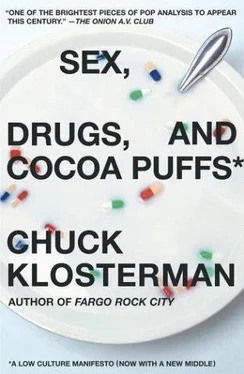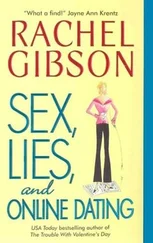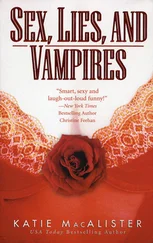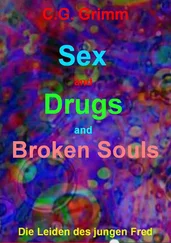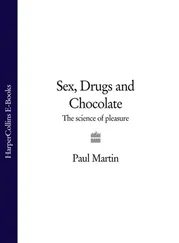(anti-homeless interlude)
So I’m eating supper in a Kentucky Fried Chicken, and this crazy old woman who looks like a disheveled version of Minnie Pearl taps me on the shoulder and asks, “Can you buy me some chicken?” I, of course, say, “What?” Because this does not seem like an appropriate question. She asks again, “Can you buy me some chicken?” This time I flatly say no. Then she changes her query and asks, “Can I have a dollar to buy me some chicken?” I again decline, and she skulks away, exiting the establishment and camping out in front of the KFC sign on the sidewalk.
Ten minutes later, I finish the last nibble of my buttermilk biscuit, all the while watching this old woman through the window. She continues to unsuccessfully panhandle. As I leave the restaurant and begin walking home, I pass this woman and she stops me again. “Can you buy me some chicken?” she asks. Again I say, “What?” She proceeds to repeat her question, and—upon my silence—asks if she can instead have a dollar to buy some chicken for herself.
To me, this just seems like a poor business philosophy. I realize street people don’t really provide a “service,” per se, but—if you had to quantify what they do contribute into some kind of discernible social role—the most flattering description might be that they make us feel like we’re part of a civilization. They are part of the urban landscape, they are reminders of how life is wicked, and they are profiles in courage.
Or at least they could be profiles in courage, if they weren’t so goddamn inconsiderate. How can you not remember talking to me, old woman? It’s not like you’re haunted by career responsibilities and bombarded by stimuli; in the past ten minutes, you’ve merely asked random strangers for free chicken. Is recalling that I’ve already declined to give you my charity too much to ask? Must you treat me like a complete stranger? As members of the same civilization, can I not expect the courtesy of a knowing glance when you beg for chicken a second time?
That’s the problem with homeless people: To them, we’re all just a number.
13 The Awe-Inspiring Beauty of Tom Cruise’s Shattered, Troll-like Face 1:51
Last night I awoke at 3:30 A.M. with a piercing pain in my abdomen, certain I had been infected by some sort of Peruvian parasite that was gnawing away at my small intestine. It felt like the Neptunes had remixed my digestive tract, severely pumping up the bass. Now, the details of my illness will not be discussed here, as they are unappetizing. However, there was one upside to this tragedy: I was forced to spend several hours in my bathroom reading old issues of Entertainment Weekly, which inadvertently recalibrated my perception of existence.
As a rule, I do not read film reviews of movies I have not seen. Honestly, I’ve never quite understood why anyone would want to be informed about the supposed value of a film before they actually experience it. Somewhat paradoxically, I used to earn my living reviewing films, and it always made me angry when people at dinner parties would try to make conversation by asking if they should (or shouldn’t) see a specific film; I never wanted to affect the choices those people made. When writing reviews, I actively avoided anything that could be perceived as an attempt at persuasion. Moreover, I never liked explaining the plot of a movie, nor did I think it was remotely interesting to comment on the quality of the acting or the innovation of the special effects.
Perhaps this is why many people did not appreciate my film reviews.
However, the one thing I did like discussing was the “idea” of a given film, assuming it actually had one. This is also why I prefer reading film reviews of movies I’ve already seen; I’m always more interested in seeing if what I philosophically absorbed from a motion picture was conventional or atypical, and that can usually be deduced from what details the critic focuses on in his or her piece. This was particularly true on the morning of my cataclysmic tummy ache, when I stumbled across EW ’s January 4, 2002, review of Vanilla Sky .
I am keenly aware that I am the only person in America who thought Vanilla Sky was a decent movie. This was made utterly lucid just forty-five seconds after it ended: As I walked out of the theater during the closing credits, other members of the audience actually seemed angry at what they had just experienced (in the parking lot outside the theater, I overheard one guy tell his girlfriend he was going to beat her for making him watch this picture!). Over the next few days, everything I heard about Vanilla Sky was about how it was nothing but a vanity project for Tom Cruise and that the story didn’t make any sense; the overwhelming consensus was that this was an overlong, underthought abomination. This being the case, I was not surprised to see EW ’s Owen Gleiberman give Vanilla Sky a grade of D+. His take seemed in-step with most of North America. However, I found myself perturbed with one specific phrase in O.G.’s review:
The way that the film has been edited, none of the fake-outs and reversals have any weight; the more that they pile up, the less we hold on to any of them. We’re left with a cracked hall of mirrors taped together by a What is reality? cryogenics plot and scored to [director] Cameron Crowe’s record collection.
The phrase I take issue with is the prototypically snarky “ What is reality? ” remark, which strikes me as a profoundly misguided criticism. That particular question is precisely why I think Vanilla Sky was one of the more worthwhile movies I’ve seen in the past ten years, along with Memento, Mulholland Drive, Waking Life, Fight Club, Being John Malkovich, The Matrix, Donnie Darko, eXistenZ, and a scant handful of other films, all of which tangentially ask the only relevant question available for contemporary filmmakers: “ What is reality?” It’s insane of Gleiberman to suggest that posing this query could somehow be a justification for hating Vanilla Sky . It might be the only valid reason for loving it.
By now, almost everyone seems to agree that the number of transcendent mass-consumer films shrinks almost every year, almost to the point of their nonexistence. In fact, I’m not sure I’ve heard anyone suggest otherwise. Granted, there remains a preponderance of low-budget, deeply interesting movies that never play outside of major U.S. cities; Todd Solondz’s twisted troika of Welcome to the Dollhouse, Happiness, and Storytelling is an obvious example, as are mildly subversive minor films like Pi and Ghost World . P. T. Anderson and Wes Anderson make great films that get press and flirt with commerce. However, the idea of making a sophisticated movie that could be brilliant and commercially massive is almost unthinkable, and that schism is relatively new. In the early seventies, The Godfather films made tons of money, won bushels of Academy Awards, and—most notably—were anecdotally regarded as damn-near perfect by every non-Italian tier of society, both intellectually and emotionally. They succeed in every dimension. That could never happen today; interesting movies rarely earn money, and Oscar-winning movies are rarely better than good. Titanic was the highest-grossing film of all time and the 1998 winner for Best Picture, so you’d think that might be an exception—but I’ve never met an intelligent person who honestly loved it. Titanic might have been the least watchable movie of the 1990s, because it was so obviously designed for audiences who don’t really like movies (in fact, that was the key to its success). At this point, winning an Oscar is almost like winning a Grammy.
Читать дальше
